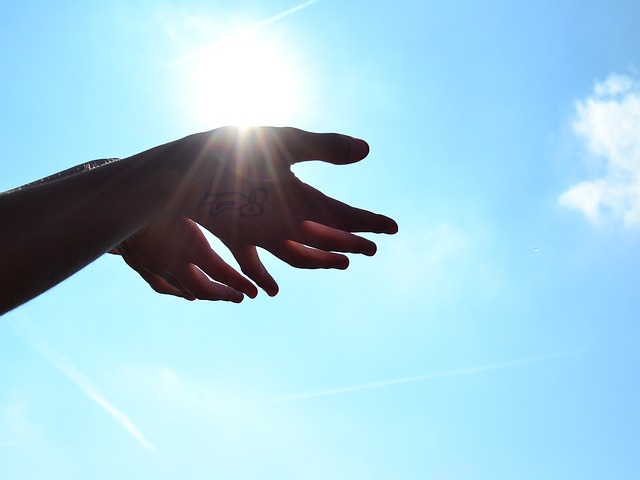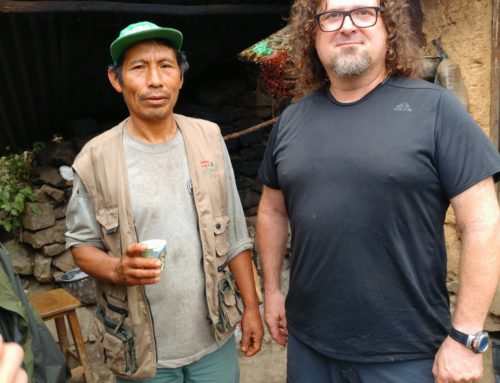I attended an assembly at my daughter’s middle school last week. It had a significant impact on me. The kids were introduced to a new program called Rachel’s Challenge. I was told by their school principal that this particular program was having a profound effect on the students of schools across the nation. Bullies at middle schools around the country are transformed. Students suddenly calling family members, apologizing for the way they acted. Kids observing and counting good deeds performed by other students around them. I felt compelled to attend and experience this phenomenon which was actually transforming teens’ behavior toward themselves, and one another.
Rachel Scott was the first student killed in the devastating attack at Columbine High School, April 20, 1999. At 17, Rachel was a humanist, a writer, and great fan of “The Diaries of Anne Frank.” She not only read the principles of Anne Frank, but put them into action in her daily life. She was a positive example to the students of Columbine. Knowing Rachel changed who these students were, and who they would become.
Rachel kept her own set of diaries; full of optimism, solutions, foreshadowing, and quotes of possibility. She wrote, “I’m going to have an impact on the world.” The principles Rachel wrote about and stood for are missing in much of our society today. In honor of Rachel’s life and her family, I pass a few of these principles on to you; hoping you will savor life, appreciate yourself and your gifts, and help others shine in the process.
#1 No Limits, No Labels
Rachel believed there was no limit to what you can do. It does not matter where you come from or how much you have. You have the ability to be and do anything in life you set your mind to. The presenter of the assembly had the kids repeat aloud, “I’m more than my label.” No labels means that you will not give yourself negative labels or accept any negative label that is placed on you. Labels limit us, they can make us something we are not. Labels keep us in a box. Labels prevent us from becoming all we can be.
#2 Accept Yourself and Accept Others
Many of us are taught at a young age to be hard on ourselves. When we get older this turns into self sabotage. The presenter showed the kids a popular YouTube video of a dog chewing on a bone, and with his own back leg, attacks himself for it. He acts as if his own leg attacking the bone is another dog. Like this dog, we attack ourselves. Some of us are taught we are not good enough, smart enough, or we’re flawed in some way. Rachel encouraged others to accept themselves as they are. Whatever your past has been, whatever you look like, whatever has happened to you, accepting yourself allows you to be. Some of us are better at accepting others than ourselves. Accepting others still may mean we disagree on certain terms or we communicate differently, however the presenter insisted that in order for us to flourish, we need to do more than just tolerate differences, we need to learn to accept them.
#3 Practice Positive Gossip
Rachel had a habit of telling people something positive she heard someone else say about them; this trend caught on. This act created an affinity among her peers. She noticed it helped people that barely knew each other respect and appreciate one another. This type of interaction created a positive association. A story was told that Dr. Benjamin Rush assisted in this type of healing between John Adams and Thomas Jefferson, after a split in friendship, that kept them writing each other until their unlikely passing on the same exact day, July 4, 1826. The presenter had the kids play a game of telephone to act out what it would be like if they heard positive gossip about themselves, and how that would make them feel, as opposed to negative gossip that has been the norm.
#4 Forgive Yourself and Forgive Others
Rachel recognized that students at her school had a tendency to be hard on themselves for mistakes they made. She realized that it caused them a great deal of pain. Forgiving yourself and others is a gift. Forgiving yourself allows you to live in the present and gives you permission to move forward. Forgiving allows you to release past relationships, which helps you to thrive in current ones. “Not forgiving others is like drinking poison and expecting the other person to feel it.” Forgiving relieves the emotional burden from the past and allows you to live fully in the present moment.
As I sat in services for Yom Kippur, the Rabbi put the first Aliyah on the screen. Strangely, it paralleled my conclusion of this post. The statement was, “You do not need to send someone to heaven to retrieve this information for you.” My final burning question was, why does it take a tragedy to make us appreciate life? What is it about loss that puts us in the heart of what matters? As a sociologist and Life Coach, I have pondered these questions for most of my life.
I witnessed the impact Rachel’s Challenge had on the kids at my daughter’s middle school. They have since begun a paper chain for every good deed the kids catch one another doing. Good deeds are infectious. Positive comments we hear about ourselves make us feel appreciated. Forgiving ourselves and others releases us from bondage. It is our responsibility to create the wave of positive change from what it has been, to what it could be. With each interaction we have with others, we have the ability to lift them up or tear them down. The choice is always up to us. The more conscious we can be in these one to one interactions, the more good we can spread. It takes the term “pay it forward” to a whole new level. What a blessing it must be to the parents of Rachel Scott to know that their daughter’s legacy of kindness and compassion will impact and improve lives across our nation, and perhaps the world, for years to come.





Leave A Comment